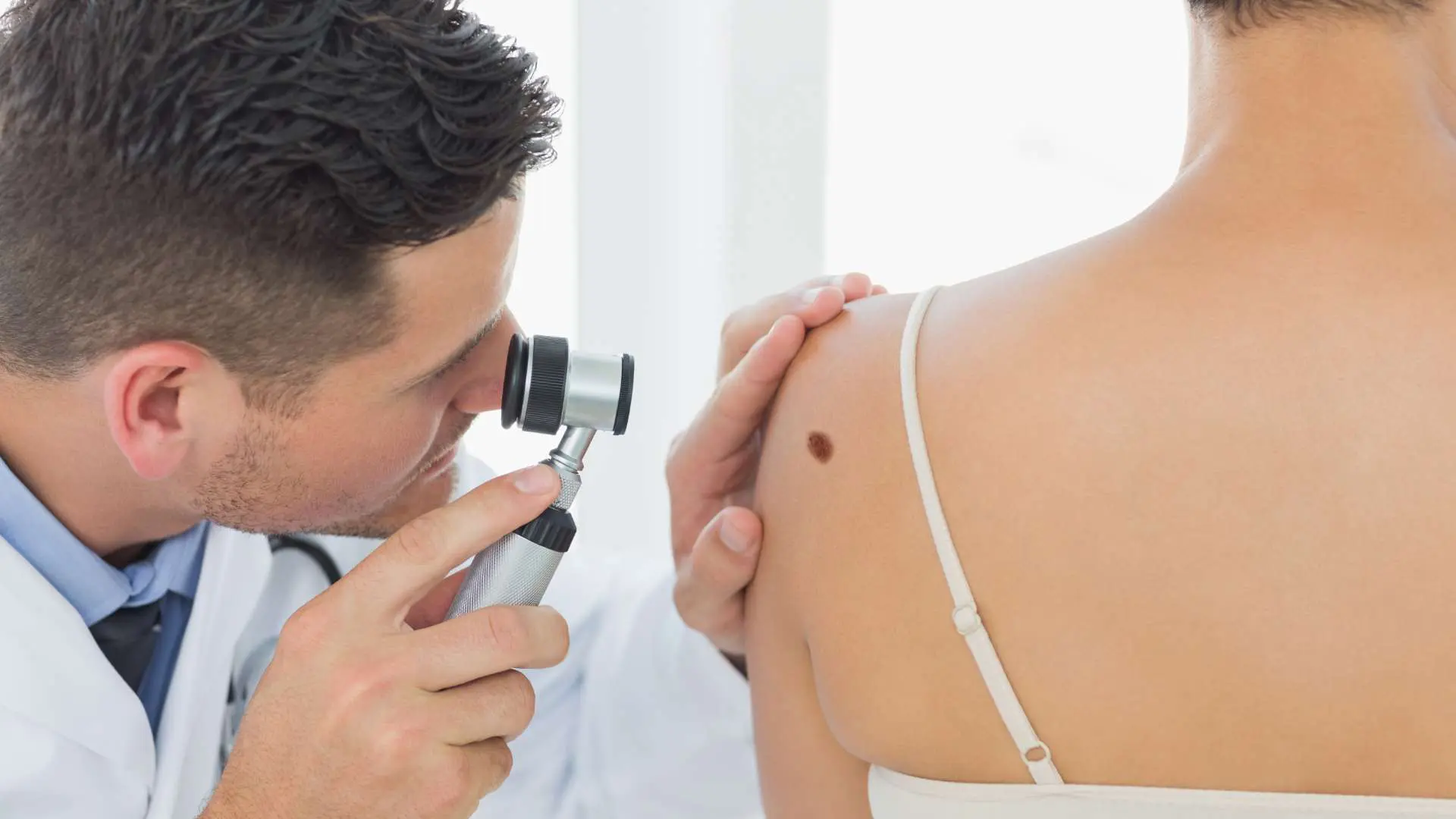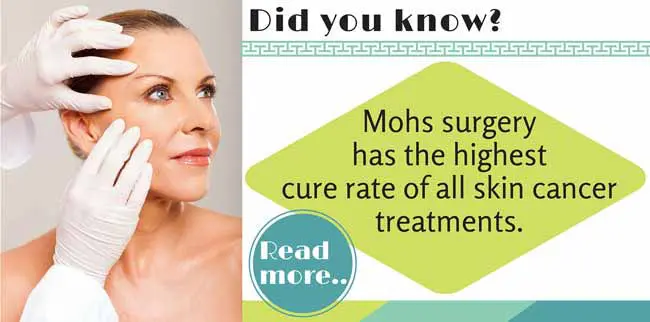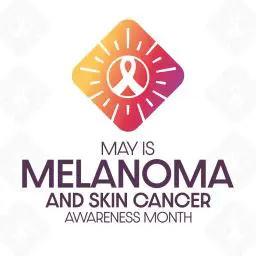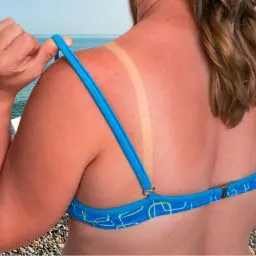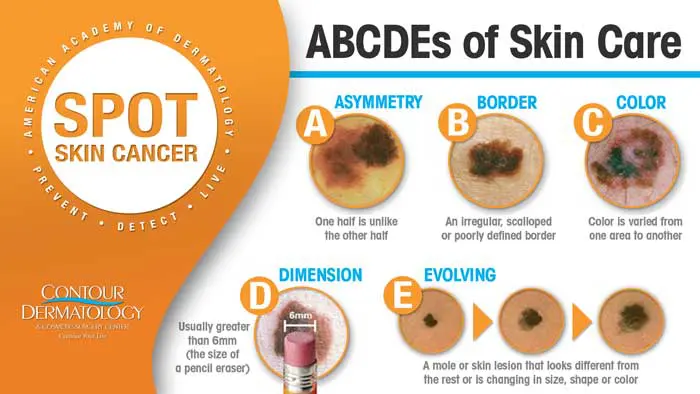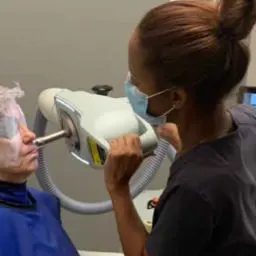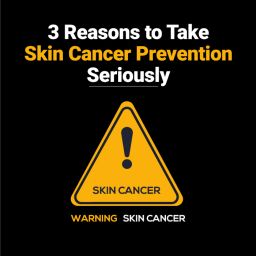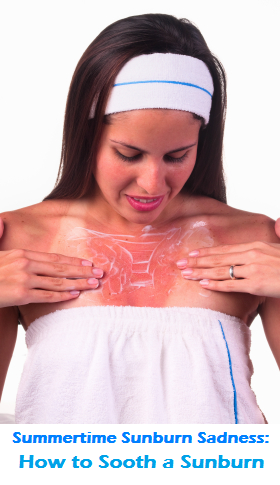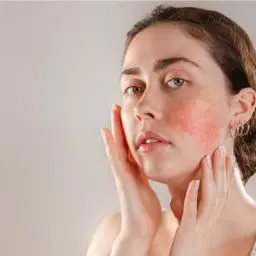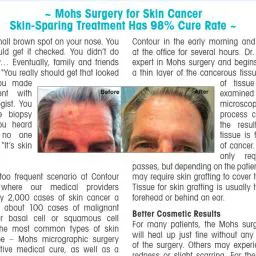Top 10 Ways to Prevent Skin Cancer
Here's Your Skin Cancer Prevention Checklist
Be sure to bookmark or print this important list and take it with you when you plan to spend and extended time outdoors. It could save your life!
Sunscreen early and often
Daily use of a broad-spectrum sunscreen of at least SPF (sun protection factor) 30 is recommended. Sunscreen won’t be fully effective until it is absorbed into the skin, which typically takes about 30 minutes. When outside, sunscreen should be reapplied every two hours, especially to commonly missed spots such as the scalp, neck and backs of hands. Sunscreen is your first line of defense against skin cancer. Don’t forget it, but don’t rely solely on it. Check with your pediatrician before applying sunscreen on babies.
Avoid peak sun hours
It’s best to plan outdoor excursions like trips to the beach for earlier or later in the day to avoid when the sun’s harmful ultraviolet (UV) rays are at their strongest, which typically occurs between the hours of 10 a.m. and 4 p.m. You shouldn’t let mild temperatures or lots of clouds fool you either. They won’t protect you because UV intensity has more to do with the angle of the rays than the temperature or the sun’s brightness. Even if it may not seem especially hot outside, sun damage can still happen.
Stay out of tanning beds
People who use tanning beds at least once a month increase their risk of skin cancer by 55 percent, according to studies, and the numbers are even more ominous for people who begin such tanning regimens in their 20s. Safer options than the sun-induced tan are spray-on tanning or a self-tanning lotion, both of which create a browner tone by interacting with amino acids in the skin but don’t involve melanocytes (skin cells that can become skin cancer).
Check for moles regularly
Check for moles on a regular basis, especially if there is a history of skin cancer in your family. The best way to check is to stand naked in front of a mirror and beginning with the face work your way down, using a handheld mirror for difficult-to-see places. Be on the lookout for changes in moles, especially any new black-colored moles or changes in size, shape, outline, color or feel. Notify your dermatologist immediately if you see any changes.
Don’t get sunburned
The damage sunburns can cause doesn’t go away when the redness fades. That damage can develop into skin cancer years and even decades later. Your risk of developing skin cancer actually doubles if you’ve had five or more sunburns in your lifetime – so don’t get burned! Have fun in the sun, but always protect yourself and your children to lower the risk of skin cancer. While there is no consensus as to the reason, those with dark skin experience skin cancer at a lower rate but the disease is more likely to be deadly.
Cover up that skin
Not all clothing is equal when it comes to providing protection from the sun. For example, a white T-shirt only provides protection equivalent to an SPF 4 sunscreen. Darker colors or tightly woven fabrics are safer options – silk and polyester in particular are two of the best. Sun-protective bathing suits can help protect skin on summer days. You also can wash clothes in a laundry treatment product that gives fabric an SPF level of 30 and lasts for up to 20 washes.
Keep your hat on
Hats are one of the simplest ways you can protect yourself from sunburns. Hats with a four-plus-inch brim reduce the UV exposure of the head and neck by 70 percent. You should wear a hat with a brim all around to protect the scalp, forehead, neck, ears and eyes. Try to avoid straw hats that aren’t finely woven since they tend to let some harmful UV rays through. Make sure whatever hat you wear is a good fit so you will leave it on and won’t end up sacrificing sun safety for comfort.
Shade those peepers
It’s just as important to protect your eyes as any other part of your body. The eyes aren’t immune to sun damage and can suffer from ocular skin cancer, the instances of which have increased in recent years. Excessive exposure to sunlight is a risk factor especially for those who are fair-skinned and blue-eyed. Sunglasses marked “meets ANSI (American National Standards Institute) requirements” effectively block 99 percent of UV rays. Wraparound-style sunglasses are best for protecting the delicate skin around the eyes.
Be wary of reflected sunlight
Have you ever reflected the sun off of a mirror? Then you can imagine what reflected UV rays can do to your skin. UV rays that reflect off of water, sand, concrete and even areas painted bright white can cause sun damage just like direct sunlight. It’s smart to wear sunscreen all the time, even in the shade. Old Man Winter won’t protect you from.
Protect your smile
Don’t forget your lips! With an SPF of 10 at best, most lipstick is designed to make your lips look pretty rather than protect them from sun damage. Keep them moist and protected with lip balm. Seek out broad-spectrum balms and lipsticks with an SPF of 30 that block both UVA and UVB rays. Just as with sunscreen, it’s important to regularly reapply lip balm, particularly after eating. Lip gloss, meanwhile, can actually intensify the sun’s rays – just like tanning with baby oil – making a bad situation even worse.
*via ASDS.net


